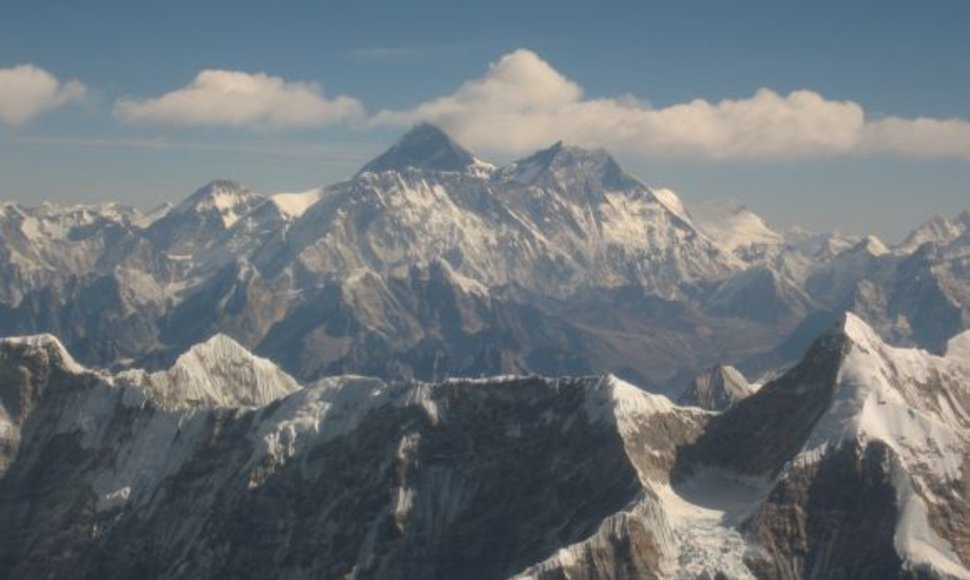Having left the last camp on Wednesday night, Edita's team went on the summit push on the more challenging northern side.
"I did it, I did it, I did it!" Edita called and told her partner right after safely descending to Camp 3. "It was so technical and so scary, it was the hardest thing I have ever done in my life."
"You know what the best thing about it is?" she asked and, after a moment's pause, confided: "I will never have to do that again!"
According to Edita's blog, the group reached the summit at 8 AM. Due to challenging weather, only four people of the group of ten climbers made it to the top.
Days leading to accomplishment
The North Col, at some 7,000 metres, marks the beginning of the most challenging segment of the Everest climb. Oxygen is low, there is little around but snow and the howling of freezing winds. The climb is long and exhausting – for example, it took 6 hours for climbers to go from Camp 1 to Camp 2, at 7,800 metres. Strong winds forced the group to stay there until they calmed down.
"We stayed at Camp 2 one day longer than expected – due to strong winds. It is too dangerous to go on. We are all just lying down in sleeping bags, sleeping with oxygen masks on, but not using too much oxygen," Edita said on the phone from the camp at nearly 8 kilometres above the sea level.
News from Camps 3 and 4 (8,300 metres) were much more optimistic. The unpredictable North Everest winds had abated and the climbers were confident they would make it.
 |
| Editos Nichols asmeninio archyvo nuotr./Edita treniruojasi kopti prisirišusi prie virvių |
Climb dedicated to poor African region
Edita dedicates her ambitious quest to a campaign called “Everest for Sahel 2013”. She says she wants to draw attention to a serious food crisis that affects millions of families in the region and also collect some funds to help.
“When I was working in Niger, the media initially paid much attention to the food crisis. But later the interest abated. And people there are suffering not just famine. An armed conflict is currently raging in Mali,” she says.
Sahel is a zone in west Africa stretching across eight states. The food crises was triggered by crop failure in 2011 due to adverse natural conditions. As stocks went down, food prices spiraled up. Many families cannot afford it and risk starving to death.
Edita saw suffering people with her own eyes and resolved to try and help them – she thought she could draw attention to their problems and maybe even collect some money for relief.
“To finance the Everest trip, I spend my own hard-earned money and borrowed funds. I finance all my expeditions myself. This trip, too, is entirely covered by my personal funds and those of my sponsors (this time, though, sponsors cover only 3 percent of the expense, - 15min). Meanwhile all the money donated or collected during the expedition, and intended for the people of Sahel, does not go to my own account but rather to one of the World Food Programme,” Edita points out.
You can support Edita's Everest quest. To learn more about how you can contribute, press here.
To support Edita directly, press here.












